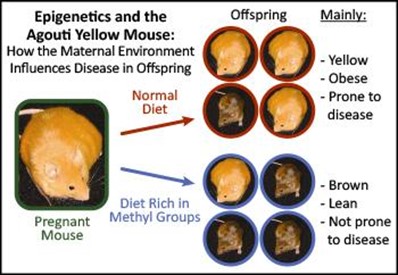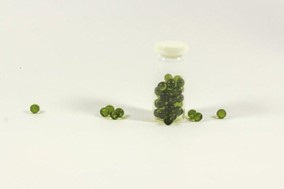What Is Epigenetics and How to Hack it for Optimal Health
Jul 27, 2022This blog on epigenetics is a teaser. I am almost ready to launch Chapter 3: Biology of Change, part of my new book More Light. The chapter has three sections one each on neuroplasticity, epigenetics and the microbiome. These are three of the most powerful mechanisms through which our self-management decisions impact our biology. The research evidence for this is strong and growing. In fact, these three biological mechanisms are more effective in improving outcomes for chronic, complex diseases than any medication. So if you find this blog interesting, stay tuned for more.
Epigenetics is one of many biological mechanisms enabling living beings such as mammals to adapt to their environment in real time and, more surprisingly, to pass those adaptations down to our offspring. Epigenetic marks are physical structures that control which of our genes manufacture proteins and which remain turned off and silent. Some epigenetic changes, such as those caused by famine and trauma, increase the risk of mental and physical diseases. Others, including many we can influence through daily lifestyle decisions, can improve our health and mediate recovery from illness and trauma.
Nature vs. Nurture
While there is still much to learn, epigenetics provides an answer to one age-old question: which is more important, nature or nurture? Nature is what we inherit from our parents: our DNA, our genetic blueprint. Nurture is what happens to us during our lives, our lived experience.
Research suggests that for most chronic conditions, epigenetics, the effect of daily experience has a much larger effect on health than genetics. This is great news because while we cannot change our genes, we can change our epigenetics, more on this later.
In this five-minute Nature video: Epigenome: The symphony in your cells, epigenetics is explained using the metaphor of music. I recommend you watch it before continuing.
As the video explains, our genome, the 20–25 thousand genes in each cell that we inherit from our parents, is like sheet music - the melody and harmony - written by a composer. The epigenome is the instruction for how to play the notes. These instructions allow the music to be interpreted according to the musicians’ taste and circumstances, creating variation without changing the underlying composition.
How Powerful is Epigenetics? It Can Change Fur Color
There are three main epigenetic mechanisms: histone modification, DNA methylation (DNAm) and non-coding RNA (ncRNA). Histones are molecules around which the long DNA molecules wind to prevent becoming tangled. With DNA methylation (DNAm), molecules called “methyl” groups bind to genes on the outside of the spools. The methyl groups stop the genes from being expressed even though they are on the outside of the histone spools. Highly methylated areas of DNA are inactive, while lightly methylated areas of DNA are more active.
In a now famous experiment, Drs. Waterland and Jirtle, then at Duke University, showed that diet could change gene expression in visible ways (Waterland & Jirtle, 2003). They used mice with an altered version of a gene called agouti, which causes mice to become yellow and obese. One group of these pregnant mice was fed a diet rich in methyl groups (such as choline, betaine, folate and B12). The other group was fed usual lab mouse kibble. In the group with the methyl-enriched diet, the methyl groups attached to the mouse DNA and turned off the agouti gene. The offspring of the mothers fed the high-methyl diet were more likely to be brown, normal weight and healthy than the offspring of the mouse mothers fed the usual mouse kibble.
Hair and fur color are genetically determined and we generally don’t think of them as changeable. This experiment shows the power of behavior, in this case diet, to change things we consider “hard-wired.” https://www.nature.com/scitable/topicpage/obesity-epigenetics-and-gene-regulation-927/

Figure 3.2.3
Impact of Diet on Epigenetics
From the open access website of the National Institute of Environmental Health Sciences
https://www.niehs.nih.gov/health/topics/science/epigenetics/index.cfm#footnote2
Does Nutrition Change Epigenetics?
This famous experiment suggests that things that we do every day such as diet can have powerful biological effects. The epigenetic impact of diet on cancer risk is well researched. Just as with the agouti mice mentioned earlier, humans also benefit from ensuring methyl donors are a regular part of the diet.
▪ Folate/B12 - Folate, most abundant in green leafy vegetables, is a well-studied methyl donor that helps decrease risk of some types of cancer, including colon and breast cancer. Folate works hand in hand with vitamin B12, found in meat and animal products. Cancer results from the activation of oncogenes and suppression of tumor suppressor genes. Methyl groups prevent cancer by binding to and inactivating cancer promoter genes (Ghazi, Arumugam, Foolchand, & Chuturgoon, 2020).
▪ Choline is a nutrient found in meat, eggs, dairy and cruciferous vegetables such as broccoli and brussels sprouts. Choline is also a methyl donor and has anti-cancer and anti-aging effects.
▪ The Mediterranean Diet - Many of you will have heard of the health benefits of the Mediterranean diet. The Mediterranean diet refers to the traditional way of eating in Spain, France, Italy and Greece. The diet is loaded with locally sourced, fresh, plant-based foods. It includes seven to 10 servings of vegetables and fruits a day (https://www.mayoclinic.org/healthy-lifestyle/nutrition-and-healthy-eating/in-depth/mediterranean-diet/art-20047801).
The Mediterranean diet includes healthy fats such as extra virgin olive oil. Fatty fish such as salmon and mackerel are suggested twice a week. Red meat is eaten less often than poultry and meat substitutes such as beans and lentils. Some dairy foods such as cheese and yoghurt, a source of natural probiotics, are included. Spices and herbs are abundant. The method of cooking is also important. In general, the Mediterranean diet uses boiling, frying, roasting, baking and grilling. Frying and grilling are done for the shortest amount of time necessary and at low heat.
Research shows that the benefits of the Mediterranean diet are in part due to epigenetics.
(Caradonna, Consiglio, Luparello, & Gentile, 2020). Foods in the Mediterranean diet directly or indirectly act on miRNA expression. It is becoming clear that the effects of Mediterranean foods are cumulative. This means you can start with baby steps and add more healthy foods gradually. The more of the epigenetically favorable foods you eat, the greater the health benefits.
Is the Placebo Effect Real and How Does It Work?
The placebo effect is an example of the impact of the power of belief, or mindset. It refers to the likelihood of a positive outcome when we believe that we are receiving an effective treatment or intervention but are, in fact, getting a sham or inactive treatment. Common examples in research studies are the use of sugar pills, fake surgeries or other therapies that don’t contain the intervention thought to be helpful.
How could a belief that one is getting an intervention lead to measurable positive or negative effects?
One of the best-studied areas of placebo response is so-called “placebo analgesia,” the response of pain to placebo interventions. Most of the research has been done in healthy individuals participating in carefully controlled studies of painful stimuli in the context of different placebo conditions. The international Placebo Imaging Consortium published a meta-analysis of 20 studies on placebo analgesia (Zunhammer et al., 2021).
 The consortium found that research subjects who had a strong placebo response showed changes in brain activity in several brain areas relevant to pain processing. This means that the belief that something would be an effective pain killer turns on the genes of the opioid system creating analgesia without medications. The authors conclude that the placebo response to pain is real and measurable. Imagine the ways you might be able to use belief to impact your health.
The consortium found that research subjects who had a strong placebo response showed changes in brain activity in several brain areas relevant to pain processing. This means that the belief that something would be an effective pain killer turns on the genes of the opioid system creating analgesia without medications. The authors conclude that the placebo response to pain is real and measurable. Imagine the ways you might be able to use belief to impact your health.
Final Thoughts
The study of epigenetics has revolutionized how we think about our ability to impact our health for better and worse. It explains how our daily diet and beliefs affect our biology in measurable ways. Interventions such as the Mediterranean diet decrease our risk of serious biomedical diseases such as cancer and heart disease. There is no reason why ME/CFS, FM, ES and Long COVID should not be as amenable to change as these other conditions.
We can’t change everything and change is not easy. Nevertheless, epigenetic research suggests we are not helpless victims of our genetics or even of our early experiences, though of course these factors are important. Simple tools to change diet and thinking can change our biology through the epigenome.
Ready to do more?
Check Out Online Courses for ME/CFS, FM, ES, Long COVID and Chronic Pain

References
Caradonna, F., Consiglio, O., Luparello, C., & Gentile, C. (2020). Science and Healthy Meals in the World: Nutritional Epigenomics and Nutrigenetics of the Mediterranean Diet. Nutrients, 12(6), 11. doi:https://dx.doi.org/10.3390/nu12061748
Ghazi, T., Arumugam, T., Foolchand, A., & Chuturgoon, A. A. (2020). The Impact of Natural Dietary Compounds and Food-Borne Mycotoxins on DNA Methylation and Cancer. Cells, 9(9), 31. doi:https://dx.doi.org/10.3390/cells9092004
Waterland, R. A., & Jirtle, R. L. (2003). Transposable elements: targets for early nutritional effects on epigenetic gene regulation. Mol Cell Biol, 23(15), 5293-5300. doi:10.1128/mcb.23.15.5293-5300.2003
Zunhammer, M., Spisák, T., Wager, T. D., Bingel, U., Atlas, L., Benedetti, F., . . . The Placebo Imaging, C. (2021). Meta-analysis of neural systems underlying placebo analgesia from individual participant fMRI data. Nature communications, 12(1), 1391. doi:10.1038/s41467-021-21179-3

